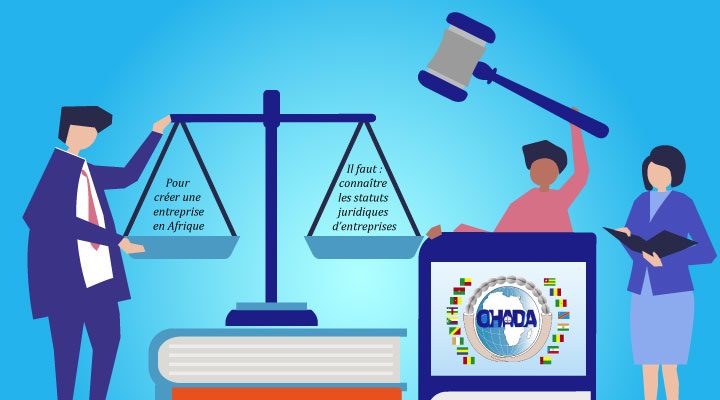Forms of businesses in the OHADA space
To start a business in Africa, you have to know the legal statutes of companies that exist in the OHADA space. Unlike other jurisdictions, failing to present the statutes briefly, there is an information challenge in Africa. If you are reading this article, you are wondering about the status of a sole partner. We will then give you the answer to your question. What legal status should you choose to start your own business?
Individual business
In the OHADA space, among the forms of business, one of the legal statutes which corresponds to the creation of a solo business is: sole proprietorship. In this case, the creator has the status of entrepreneur. It is therefore subject to different rules from other types of businesses.
Many stop at the expression “sole partner” and think that there should not be an employee in a sole proprietorship, this is completely inaccurate. Individuality means that you manage your business on your own. But that doesn’t mean that you manage the work without help. It is quite possible to recruit, as in any company, employees for any service.
In addition to the flexibility of the creation procedure and the taxation, there is generally no minimum capital for its creation. However, one of the big disadvantages of this type of business is its status, which can have advantages. Thus, the status makes the company and the person inseparable. In other words, the company’s heritage is therefore inseparable from that of the manager. The legal person then does not exist and it is therefore the income tax (entrepreneur) which will be applied. This means that in case of problems, the manager can be sued and his own property (as well as that of the spouse) involved.
The One-Person Limited Liability Company
There is also the One Person Limited Liability Company. Another version of sole proprietorship is SURL. However, as its name suggests, it is a company, a legal personality. This brings us to the primary advantage of this type of society: heritage protection. Therefore, in the case of the creation of a SUARL, the assets of the company are separated from that of its owner. He does not then commit the spouse’s assets. This type of business is presented as the best for a personal business. This in the sense that it has the advantages of an individual business (while having a more complicated procedure than the latter) and it helps protect its assets.
If we take into account what has been said in the legal framework, the fiscal framework becomes obvious. Since SUARL is a legal entity, with regard to taxation, it is the corporate tax which will be highlighted.
What about credibility? SUARL appears to be more credible than a sole proprietorship. The reason is very simple. Being a company with legal personality, SUARL would respond to more demanding rules and procedures which would naturally place it before the sole proprietorship.
The bottom line is that first, if you want to start a business on your own, ask yourself the following questions: What procedures? What taxation? This will allow you to report requirements and legality in order to make the right choice. Then, the OHADA rules can be adapted to the country that applies them. This is the example of several countries including Senegal which has reduced the minimum capital for the creation of an LLC. The capital thus increased from 1,000,000 FCFA to 100,000 FCFA.
Read also: https://www.afrikatech.com/fr/entreprendre/start-de-la-semaine-legafrik-veut-simplifier-les-demarches-des-entrepreneurs-africains/
Other article: https://www.legavox.fr/blog/jurisao/formes-societes-commerciales-droit-ohada-21128.htm


Leave a Reply